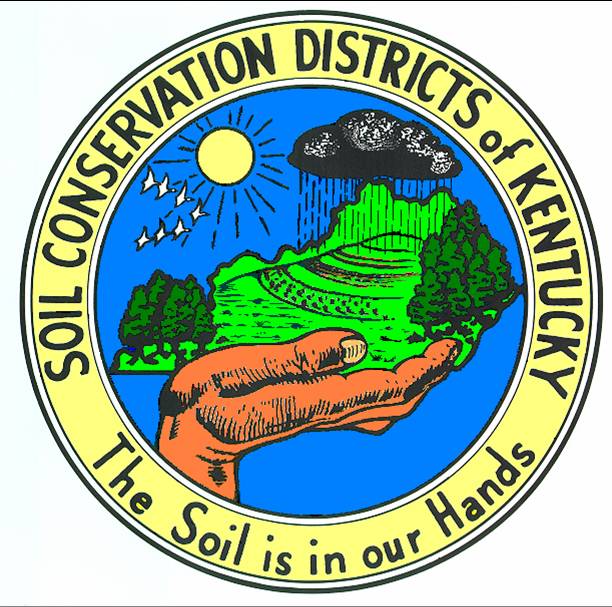By: Jeremy Faulk
On January 16, 2018, the Office of the State Budget Director in Kentucky published the Executive Budget for the 2018–2020 fiscal years. The Budget is only a rough draft of what the final budget will contain, but with Republican majorities in each house of the General Assembly, it is likely that few significant substantive changes will be made.
Included in the budget is the elimination of seventy state-funded programs, one of which is Direct Aid to Kentucky’s Soil and Water Conservation Districts (SWCDs).[i] In response, David Rowlett, President of the Kentucky Association of Conservation Districts (KACD), has rallied the SWCDs, requesting that they lobby local representatives in the General Assembly to re-instate the funds for Direct Aid.[ii] Rowlett says that Direct Aid is necessary to fund district initiatives like technical assistance to landowners with Agricultural Water Quality Plans,[iii] funding for Envirothon teams,[iv] and other educational endeavors that help fulfill the districts’ conservation mission.[v]
Direct Aid from the state is one of two primary sources of funding for Kentucky’s SWCDs. The other source comes from the Fiscal Courts in the form of either millage taxes or one-time appropriations.[vi] As Kentucky attempts to correct for past unfunded pension obligations,[vii] it is important that all levels of government receiving state funding find ways to cut costs while still maintaining necessary services. While the Fiscal Courts, school districts, and even fire districts may look to make up funding lost from state austerity by levying additional local taxes, Kentucky’s SWCDs have no such recourse.[viii]
http://conservation.ky.gov/Pages/KentuckyAssociationofConservationDistricts.aspx
The Governor’s Budget and the KACD’s response has revealed a fundamental flaw in the statutory scheme maintaining the SWCDs: the locally-elected SWCDs are completely dependent on other governmental bodies for funding, and the districts are the only elected bodies in the state that cannot provide for themselves through either tax levies or collections of fees. Kentucky taxpayers elect the boards of the SWCDs, yet in an ironic twist, Kentucky’s SWCDs exist in a state of “representation, and yet no taxation.”
The elimination of state funding for Kentucky’s SWCDs comes at a time that the Trump Administration is advocating 10% cuts for conservation at the federal level.[ix] The SWCDs’ partners at the federal Natural Resource Conservation Service and the state Division of Conservation will be restricted in their abilities to provide administrative and technical support,[x] while the SWCDs themselves have no way of making up the difference.
The simplest solution that will satisfy both the Governor’s Budget and the concerns of the KACD is to allow Kentucky’s SWCDs to levy taxes in order to secure their own funding. By adopting legislation to that effect, SWCDs will have a long-term solution to the state’s short-term challenges. In the meantime, and without such a solution, the SWCDs will struggle to maintain their statutorily-mandated obligations to landowners.
[i] Office of State Budget Dir., 2018-2020 Executive Budget (2018), https://osbd.ky.gov/Publications/Documents/Budget%20Documents/2018-2020%20Executive%20Budget%20Recommendation/Executive%20Budget%20Vol%20I%20-%20Final.pdf.
[ii] Letter from David Rowlett [https://perma.cc/9ZJG-XBF6].
[iii] Agriculture Water Quality Act, Ky. Div. of Conserv., http://conservation.ky.gov/Pages/AgricultureWaterQuality.aspx (last visited Feb. 11, 2018).
[iv] Envirothon, Ky. Div. of Conserv., http://conservation.ky.gov/Pages/Envirothon.aspx (last visited Feb. 11, 2018).
[v] Rowlett, supra note ii.
[vi] Ky. Rev. Stat. Ann. § 262.200(4) (West 2017).
[vii] Tom Loftus, Gov. Matt Bevin’s Budget Proposal Includes Surprise on Teacher Pensions, Courier J. (Jan. 17, 2018, 1:19 PM), https://www.courier-journal.com/story/news/politics/2018/01/17/kentucky-budget-teacher-retirement-system-matt-bevin/1039960001/.
[viii] E.g., Ky. Const. § 171 (General Assembly’s power to tax); Ky. Rev. Stat. Ann. §§ 67.083, 75.040, 91.280 (West 2018) (Fiscal Courts’ power to tax, Fire District’s power to tax, and Municipalities’ power to tax respectively).
[ix] Office of Mgmt. and Budget, Major Savings and Reforms: Budget of the U.S. Gov’t 1, 9 (2017), https://www.whitehouse.gov/wp-content/uploads/2017/11/msar.pdf.
[x] Minutes of Kentucky Association of Conservation Districts Meeting, Ky. Ass’n of Conserv. Dists. 1, 5 (Sept. 21, 2017), http://conservation.ky.gov/KACD%20Meeting%20Minutes/KACD%20Minutes%2009-21-2017.pdf.


